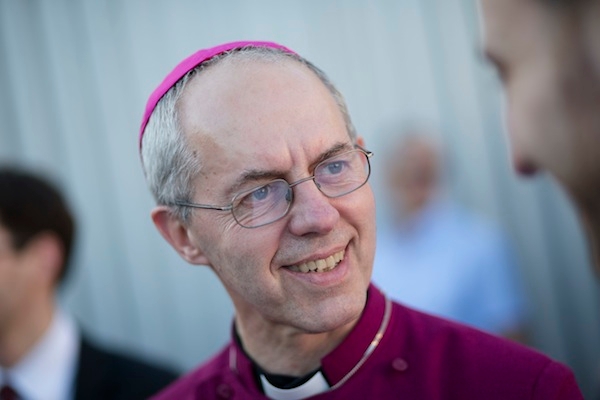Here are some observations from the ‘incendiary’ letter from the House of Bishops that has upset the Tories so much.
‘Our electoral system often means that the outcomes turn on a very small group of people within the overall electorate. Greater social mobility and the erosion of old loyalties to place or class mean that all the parties struggle to maintain their loyal core of voters whilst reaching out to those who might yet be swayed their way. The result is that any capacious political vision is stifled.’
‘Instead, parties generate policies targeted at specific demographic groupings, fashioned by expediency rather than vision or even consistency. The art, or science, of targeting policies to tightly-defined, electoral groups has become highly-sophisticated – but the idea that politics is about satisfying the wants of distinct groups so as to win their votes has prevented our politics from rising above a kind of Dutch auction.’
‘When it descends into tribalism, politics ceases to be about wisdom, balance or humility.’
These don’t sound like the witterings of some old lefty in an ivory tower: they’re the sort of things that people across the spectrum have been complaining about for a good while. Yet the Tory party is very angry about the pre-election advice that the Church of England has issued. The musings on the problems with democracy in this country aren’t the bits that have really upset the party; rather it’s the anxious bits about welfare, the way benefit claimants are viewed and this paragraph:
‘Our political life would be equally enhanced if it were possible to speak about markets, business and the profit motive as an impressively effective system of distribution in a complex society and hugely liberating of human creativity – but one which also tends to entrench inequality, diminish human sympathies and, unchecked, damage the conditions for its own flourishing.’
David Cameron rejected the criticisms yesterday, and so the narrative has become that this is the Tory party continuing its 30-year battle with the Church that began with Faith in the City in 1985. Yet there is also much that should worry the Left in the report, particularly criticisms by the Bishops of over-reliance on the state at the expense of ‘local voluntary action and neighbourliness’. And the overall criticism, that politicians are putting voters off democracy, is one that should worry both Left and Right.
Some of the report’s contents are rather naive, and sound a bit more like the content of a fringe session at the Lib Dem conference entitled ‘Why can’t we just all get along?’ than a realistic manifesto for better political behaviour. The section on Trident sounds particularly nice but naive, and certainly positions the Church in a certain part of the political spectrum, even as the letter’s authors protest they are being neutral. The report does fret far more about capitalism and globalisation than it does recognise the sheer force of those systems for lifting people out of poverty. It it mealy-mouthed about employment figures.
But other sections contain criticisms about political culture that anyone could consider. Is it really right that politicians are giving up on making broad appeals to the electorate and are instead just targeting segments of the population with targeted messages? Is it right that tribalism stops parties accepting when the other has come up with a good idea, or that perhaps the shiny new policy that they’re toting isn’t very well-designed and could in fact hurt people?
There are two risks here. The first is that the Church, either by design or by accident, ends up giving the impression that it is instinctively left-wing, which means that it struggles to cut through with important advice to politicians on the right and that left-wingers don’t realise that the criticisms in this document and others are aimed at them too. The second is that the very tribalism that the document highlights stops politicians really reading the advice of the bishops at all and wondering quietly whether some of it is worth taking. Perhaps the bit on Trident is wrong, but the bit about political language is right. Perhaps there is a bit too much wishful thinking about moving beyond left and right, but the point about voters not believing that a change of government will change their lives or the country.
An additional problem that could arise if the Church itself isn’t careful is that its declining congregations simply makes it less authoritative when it claims to speak for even a section of the electorate. Justin Welby and colleagues have been discussing how to address the decline of Anglican congregations, partly because falling church numbers are a bad thing in themselves, but partly also because a Church that wants to speak loudly needs plenty of voices in it to be able to do so.
But the political reaction to the letter has been over-the-top. It does suggest that politicians cannot ‘think it possible that you may be mistaken’, as the report gently quotes Oliver Cromwell. If the Tory party and others really think the Church should take its beak out of politics, then they are advocating disestablishment, which some would welcome. But I’m not sure that’s really what many Conservatives are after. In which case, they will have to accept that Bishops won’t always tell them that everything they are doing is wonderful.







Comments